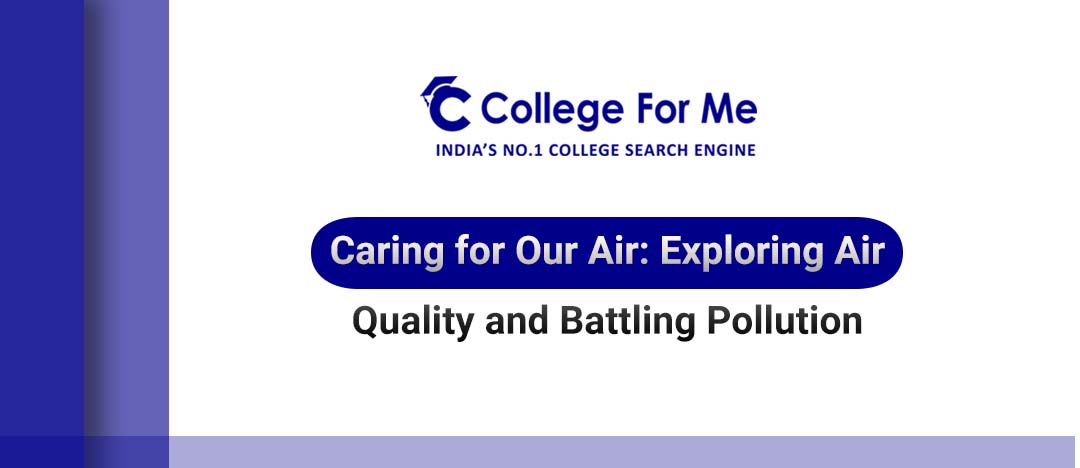Career Scopes Of A B.Tech. Student
There is a high demand for B.Tech. degree holders in the private sector, yet, there is also the opti...

The air we breathe is essential for life, yet it's something we often take for granted. In today's world, understanding air quality and pollution is more crucial than ever. Whether it's the smog in our cities or the unseen particles in the atmosphere, the quality of the air we inhale can significantly impact our health and the environment.
In this article, we will delve into the basics of air quality, explore the sources and effects of air pollution, and discuss ways we can all contribute to cleaner and healthier air.
Understanding Air Quality
Air quality refers to the state of the air in our surroundings, including the presence of pollutants and overall cleanliness. It's measured using various indicators, with common pollutants including particulate matter (tiny airborne particles), ground-level ozone, carbon monoxide, sulfur dioxide, and nitrogen dioxide.
Sources and Effects of Air Pollution
Air pollution's effects are far-reaching, impacting human health, ecosystems, and the atmosphere. Health-wise, polluted air can lead to respiratory diseases, allergies, and even heart problems. Environmentally, it can harm plant life, damage bodies of water, and lead to the formation of acid rain. On a broader scale, air pollution contributes to climate change by releasing greenhouse gases that trap heat in the atmosphere.
Taking Action for Cleaner Air
Caring for our air is a collective responsibility that begins with understanding the importance of clean air and its impact on our health and the environment. By recognizing the sources of air pollution and its effects, we can make informed choices and take action to reduce our individual and collective carbon footprints. Through mindful habits, advocating for change, and supporting sustainable practices, we can work together to ensure that the air we breathe remains clean, safe, and vibrant for generations to come.
Caring for Our Air: Exploring Air Quality and Battling Pollution
The air we breathe is essential for life, yet it's something we often take for granted. In today's world, understanding air quality and pollution is more crucial than ever. Whether it's the smog in our cities or the unseen particles in the atmosphere, the quality of the air we inhale can significantly impact our health and the environment.
In this article, we will delve into the basics of air quality, explore the sources and effects of air pollution, and discuss ways we can all contribute to cleaner and healthier air.
Understanding Air Quality
Air quality refers to the state of the air in our surroundings, including the presence of pollutants and the overall cleanliness. It's measured using various indicators, with common pollutants including particulate matter (tiny airborne particles), ground-level ozone, carbon monoxide, sulfur dioxide, and nitrogen dioxide.
Sources and Effects of Air Pollution
Air pollution's effects are far-reaching, impacting human health, ecosystems, and the atmosphere. Health-wise, polluted air can lead to respiratory diseases, allergies, and even heart problems. Environmentally, it can harm plant life, damage bodies of water, and lead to the formation of acid rain. On a broader scale, air pollution contributes to climate change by releasing greenhouse gases that trap heat in the atmosphere.
Taking Action for Cleaner Air
Caring for our air is a collective responsibility that begins with understanding the importance of clean air and its impact on our health and the environment. By recognizing the sources of air pollution and its effects, we can make informed choices and take actions to reduce our individual and collective carbon footprints. Through mindful habits, advocating for change, and supporting sustainable practices, we can work together to ensure that the air we breathe remains clean, safe, and vibrant for generations to come.

There is a high demand for B.Tech. degree holders in the private sector, yet, there is also the opti...

If you are looking for a bright and prospective career, then getting a B.Tech. in CSE must be under ...
Comments (0)